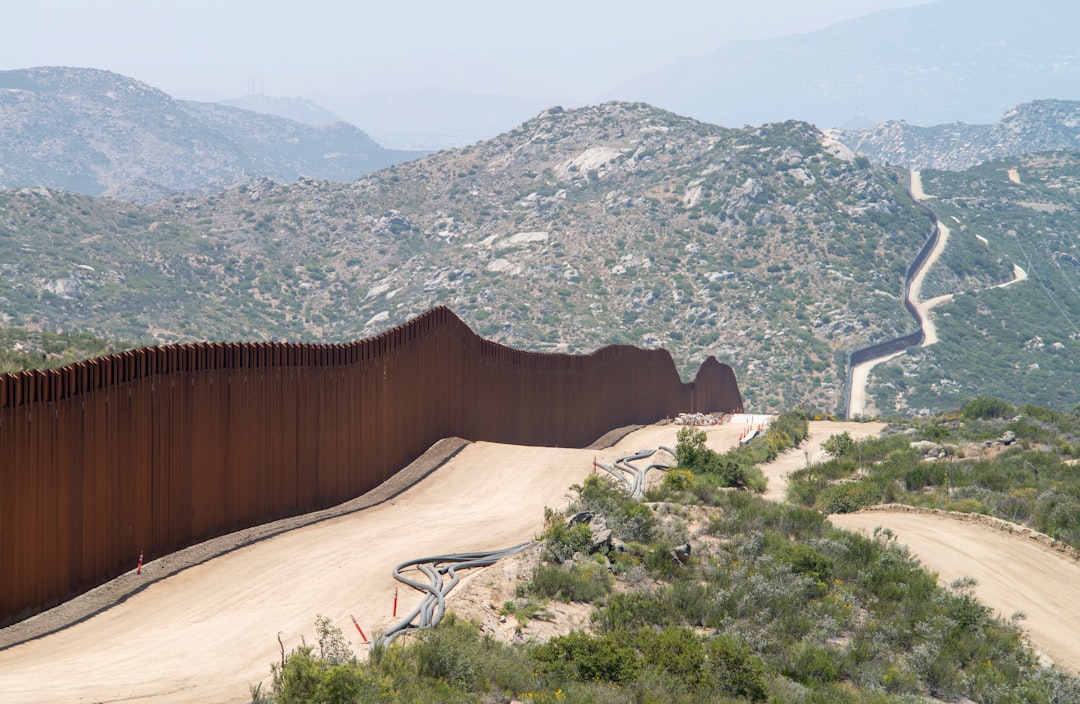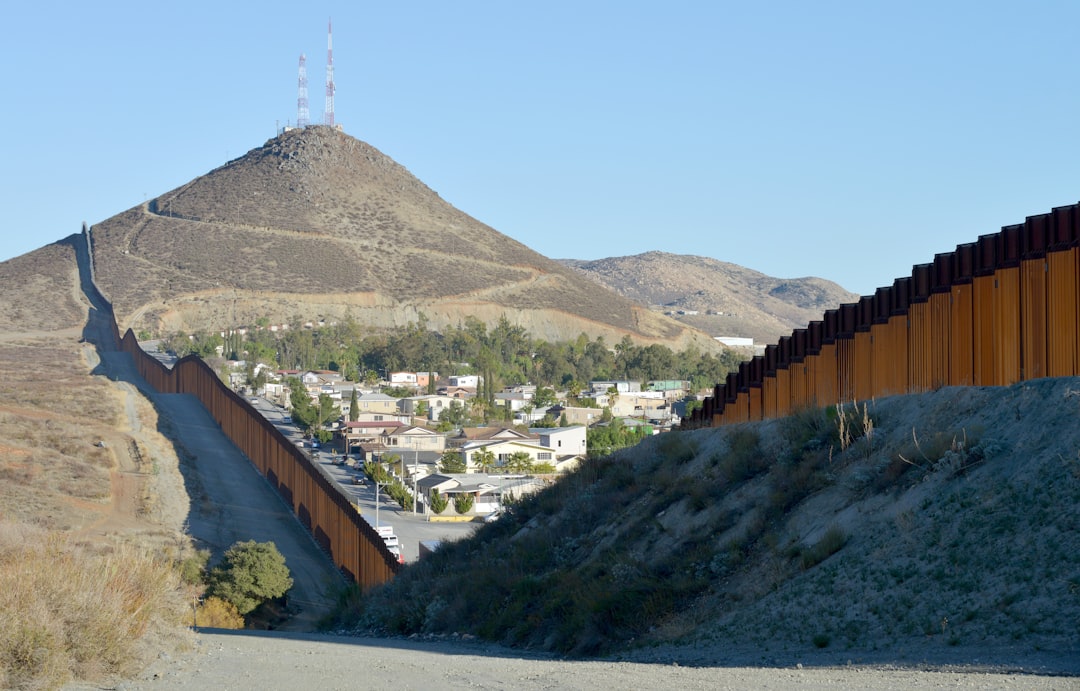A NOTE FROM THE OTHER SIDE OF THE WALL
For centuries, civilizations have built walls to keep others out, not recognizing how those walls can also close them in.

The shuttle driver’s broad smile masked the disconcerting news he was about to share. “The traffic is very bad this morning, Señor. Bastante malo. It is Monday morning and people are going back to work.”
“But,” he assured me, “I will get you to the conference center on time.”
A glance at my watch allowed a sigh of relief to escape my lips. I was familiar with traffic congestion in Guatemala’s capital city, given years of visiting and working there. Despite the short distance from my hotel to the conference center, I had built ample travel time into my schedule.
“OK,” I said to the driver. “Let’s go! Vamanos!”
Our minivan eased out of the hotel drive and merged into a sea of cars. To get to the main road, we navigated around the hotel’s city block through a grid of one-way streets. Inching along the circuitous route, we reached an intersection and stopped. The bumper-to-bumper cross traffic had the right-of-way, and no drivers would cede space to allow vehicles to merge. I detected a low moan from the driver, revealing it could be awhile before we moved again.
Trapped, I had two choices. I could review the notes for my conference presentation one more time, or look out the car window. I was not yet awake enough for the notes, so I looked out.
The scene before me was that of a young Mayan Indian woman dressed in her colorful but faded village traje. She sat against a wall with her shawl draped across her chest while she nursed her baby. She rocked her body back and forth in front of a small paper cup with a few coins in it. Her expressionless face reflected the numbing poverty in which she existed. I looked away, glancing up toward the top of the wall about ten feet above her. And when I did, I saw the long green fronds of a palm tree arching over the hotel’s garden wall behind her. At that moment, I also realized exactly where I was.
The day before, Sunday, I had dedicated to recovering from a hectic week of pre-trip preparations and re-energizing for the busy week ahead full of meetings. I had lain in a lounge chair under that same palm tree on the other side of the hotel’s wall. Surrounding me was a manicured tropical garden of flowers and shrubs laid out as a quiet oasis of relaxation for hotel guests.
I realized then that I had enjoyed the previous day’s idyllic garden setting in blissful ignorance of what had been taking place only a few feet from me. The shuttle driver must also have taken in the scene and perhaps noticed my discomfort.
“That woman,” he said. “She’s always there when I come this way. That must be her spot.”
He hurried to respond to the perplexed look I gave him. “She depends on the drivers in all these cars to give her kids enough money for food.”
“Her kids?”
“Yes,” he replied. “Do you see those two small children up ahead in the street working their way towards us between the cars? They’re her muchachos. No school for them. There are street children like them all over the city. Their families depend on them collecting a few centavos to pay for food. That is, if those children are lucky enough to have familias. Some are orphans, desamparados. There are few places that will care for them; maybe a church or private group helps some. The government has few places and little money to help them all.”
“I was on the other side of that wall at the hotel pool yesterday,” I shared with the driver. “I didn’t know what was going here on just a few feet away from me. It’s so sad to see such a young woman and her children begging to survive.”
“We don’t think of them as beggars.” The shuttle driver’s face now displayed something that was a cross between a grin and a smirk. “We like to call them unofficial tax collectors.”
“Tax collectors?”
“Yes, tax collectors,” the driver explained. “If you pass by here later in the day, you will see the police out patrolling. They will tell you they are there to clear the streets of people like that woman. But the police come to take a share of the money she and her children collect. If she does not pay them, they will remove her. Someone else who will pay the police will take her place. If she pays her multa regularly, the police officer might protect her and her spot on the street.
“But I think she will pay the police with part of the money her children collect from the rich people in the cars. The rich people, los ricos, they refuse to pay their taxes to the government. They don’t pay taxes because they are powerful. That means the government has little money, poco pisto, to pay the police a good salary. The police, well, they make up their salaries by charging the woman and her children a multa for permission to collect money from those rich people in the cars. It’s a crazy tax system! Loco, no? That’s how things work in Guatemala.”
We continued the rest of our drive in silence. Though I arrived at the conference center on time, my thoughts were back at that intersection and the street-wise lesson on how the Guatemalan economy actually works. Observing a Mayan mother and her children and listening to a shuttle driver was more revealing about than what fellow academic and government conference participants and I shared during our meetings.
As I reflect today on that morning experience in Guatemala, I realize just how much we wall ourselves off from the rest of the world and don’t even think about the consequences. Think for a moment about walls throughout history. What immediately may come to mind is, say, the Great Wall of China or perhaps all those walls and ramparts around castles, towns and military forts across much of Europe. Ironic, perhaps, but all those walls are now reduced to rubble or restored in part as tourist attractions.
Past civilizations constructed walls intending to protect those within from those without. “Without” in both meanings of the word: those without the walls who were “unworthy” of living among those elites within; and those with little of anything on which to live, the oppressed and the poor who just might seek revenge or retribution if it were not for those walls.
Throughout recorded history, however, construction of walls has proven futile. A wasted investment. Few walls serve their intended purposes today. Why did walls unfailingly fail? Historians frequently cite the advancement of technology, especially in warfare, as the reason more powerful weapons surpassed what walls could withstand. However, that’s not the complete answer. Decadence and ineptitude of those inside those walls led to their declining capacity to govern; while their subjects became unwilling to defend their more privileged and protected lives.
I believe also that one of the main reasons walls fail is because they block information about the plight of the poor and disadvantaged struggling outside those walls. Walls shut off critical information that rulers needed to govern well. Walls produce a false sense of security and foster an unrealistic complacency toward how powerful a force for change the dispossessed and desperate could be.
Those in America who advocate for constructing a wall along our southern border also argue it is necessary to protect those of us within the country from those without. “They will take our jobs,” they argue. “They will be a burden on our social services. They will commit crimes against our citizens. We need to wall them out! Once we have a wall, they claim, problem solved!”
This view fails to recognize that border walls are only the most physical manifestation of the barriers we erect toward other nations. We also use domestic subsidies and import quotas to limit the flow of other countries’ export commodities into our economy. Those subsidies and quota barriers make it harder for our trading partners to generate jobs and income from what they sell to us. That loss of jobs and income further drives the poor to search for remunerative employment elsewhere, particularly by migrating abroad.
Ironically, today it’s easier for a Guatemalan sugar worker to make his way into the US than it is for a bag of Guatemalan sugar. That’s because US barriers to trade like quotas limits foreign sugar sales to us. Economics teaches that everyone gains when a country can export its workers’ labor embodied in the products it can sell competitively. When countries can’t export their labor embodied in what they produce, they will export their labor.
The result: emigration. If Guatemala can’t export its labor embodied in the sugar it produces, it will simply export its labor, as the flows of Guatemalan migrants abroad demonstrates.The same applies to several other countries “exporting” their workforces. Those workers are seeking better livelihoods than they can achieve on the other side of economic and physicals that separate us.
To combat my complacency regarding global barriers, I reflect on the Mayan mother and her children struggling in Guatemala City. There is, of course, nothing in her personal struggle that can adversely affect me as an individual or us as a nation. But I sense that in many subtle ways, I pay a price for my indifference towards her suffering and the system that causes her misery.
Despite our differences, there is one thing that I now realize I have in common with that impoverished Guatemalan mother. We both are aware of how the ‘system’ works against her. What is relevant about our differences is that one of us is better equipped to do something about it. That person is me.
What I ultimately will do, I’m not yet sure. First, I must work to discern more clearly how the lives of those in neighboring nations are bound to ours. Then, I most likely will need to tear down some mental and physical walls that keep me ignorant. If I commit to doing that, and then find ways to act, maybe my encounter with the young Mayan mother on the street in Guatemala won’t have been for nothing. ###


